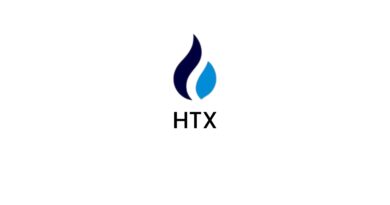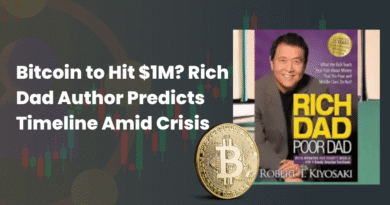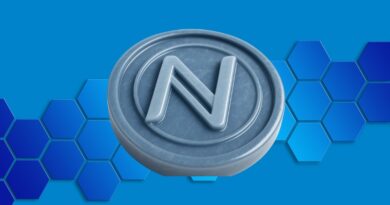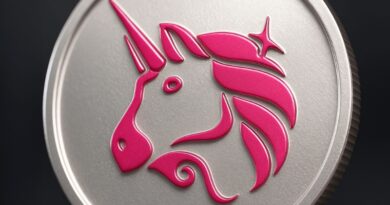Tokenized Matchmaking Revolution: Sam Altman’s World Meets Match Group
Sam Altman, Crypto, and the Future of Dating: What’s Going On?
What happens when the brains behind AI-powered digital identity meet one of the biggest online dating companies in the world? A bold new partnership between Sam Altman’s crypto project “Worldcoin” and the Match Group (owners of Tinder, Hinge, OkCupid, and more) may have the answer.
It’s not just about swiping left or right anymore—it’s about building trust in a digital world. Let’s break this down.
What’s Worldcoin All About?
Sam Altman, the CEO of OpenAI, co-founded Worldcoin with a big mission: to create a secure, global identity system using blockchain technology. The idea? Everyone gets one unique digital identity, verified through a tool called the “Orb.”
This Orb is not a futuristic idea—it’s a real device that scans your eyes to confirm your identity. Once verified, you get a “World ID,” which proves you’re a unique person without revealing your actual identity.
Why does this matter?
Because in a world filled with bots, fake profiles, and catfishing, proving that you’re a real human is valuable—especially on social platforms and dating apps.
Match Group Steps Into the Web3 Era
Match Group, home to some of the world’s leading dating platforms, is now experimenting with Worldcoin’s World ID.
The goal? To reduce fake profiles and improve authenticity on dating platforms.
Think of the times you’ve messaged someone on a dating app only to realize they weren’t real. Or worse—got caught in a scam. This partnership is looking to stop that.
Why Is Verification Important for Dating Apps?
Online dating is now more popular than ever. But with millions of users signing up daily, platforms are struggling to:
- Spot and remove fake profiles
- Detect bots and automation tools
- Verify users without making the sign-up process too hard
World ID offers a solution that doesn’t require uploading official documents or filling out long forms. It uses biometrics to confirm you’re a real, living human—quickly and privately.
If you’ve ever felt uneasy about who’s really behind a dating profile, this new system could offer more peace of mind.
But What Does “Tokenized Matchmaking” Even Mean?
The term might sound technical, but here’s the simple version.
Worldcoin not only verifies identities—it also rewards users with crypto tokens for registering and verifying. So in theory, you could:
- Sign up for a dating app
- Verify your identity with World ID
- Get rewarded with tokens for proving you’re a real person
These tokens might be worth money or used as part of exclusive features on apps in the future.
Sounds interesting, right? But it’s more than just earning tokens. Tokenized matchmaking could change how dating works—by rewarding authenticity, safety, and engagement.
Could This Be the End of Fake Dating Profiles?
One hope is that this tech will make catfishing a thing of the past.
By making verification part of the sign-up process, dating apps could let people know who’s really behind the screen. It also gives users more control over their data. With World ID, the user owns their identity—not the platform.
Instead of handing over tons of personal info, you’d verify your humanity with one scan—and keep your privacy intact.
So What’s Next?
Match Group and Worldcoin have started a pilot program. This means they’re testing World ID on a small scale first.
It’s not clear yet which dating app in the Match family is using it or how exactly it will work in practice. But early efforts suggest the companies are serious about improving trust and safety in online spaces.
Here’s why that’s a big deal:
- Online scams on dating apps are growing: Romance scams cost users hundreds of millions of dollars globally every year.
- AI is making fake profiles harder to detect: With tools like deepfakes and chatbots, scammers can make their profiles look and sound very real.
- Real users want more transparency and control: People are asking, “Who am I really talking to?” and “How is my data used?”
Integrating secure digital identity systems could be the answer.
What If You Don’t Want to Share Biometrics?
This is a big question. Not everyone is comfortable with scanning their eyes or sharing biometric data—even with a promise of privacy.
Worldcoin says your scan doesn’t reveal your personal identity. Instead, it creates a unique verification code that can’t be copied. The company has stressed that it doesn’t store the scan data itself—it just uses it to create the World ID.
Still, this part of the project might be a hurdle for adoption, especially in regions with strict privacy rules or wary user bases.
Can Blockchain and Dating Really Mix?
Dating and crypto might seem like oil and water. But think about it this way:
You trust banks with your money. Can you trust algorithms with your heart?
That’s the challenge Match Group and Sam Altman are taking on. By combining secure technology from the blockchain world with the emotional (and often risky) world of dating, they’re aiming to create a safer space for people to connect.
And it doesn’t stop at dating.
Digital identity could be used for:
- Online communities
- Social media platforms
- Event access and ticket verification
- Online voting or polls
The dating world might just be the first to try it on a large scale.
Too Early to Tell?
Yes—and no.
The pilot is still small. Questions remain about how platforms will roll out World ID, how users will respond, and how much data will really stay private.
But it signals a shift. One where platforms have to earn user trust—not just ask for it.
Why This Matters to You
Even if you’re not using dating apps, the move toward digital identity verification affects all of us. Every time we log into a site, fill out a form, or create a profile, we’re giving away bits of ourselves.
Wouldn’t it be better to prove we’re human without giving up so much of our personal data?
That’s what Sam Altman and Match Group are betting on.
Final Thoughts
World ID might not be perfect, and tokenized matchmaking may sound futuristic, but the need is real. People want safer, more trustworthy platforms—especially in spaces as personal as dating.
If this takes off, you could be seeing digital identity everywhere you go online.
So, what do you think? Would you scan your eye to prove you’re real if it meant safer, scam-free dating?
The future of romance might be closer than you think—and it could come with a bit of crypto on the side.









